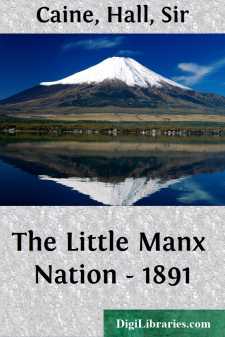History
- Africa 30
- Americas (North Central South West Indies) 50
- Ancient 68
- Asia 58
- Australia & New Zealand 8
- Canada 41
- Caribbean & West Indies 1
- Civilization 20
- Eastern Europe 12
- Europe 310
- Expeditions & Discoveries 60
- General
- Historical Geography 1
- Jewish 9
- Latin America 3
- Medieval 8
- Middle East 13
- Military 248
- Revolutionary 8
- Study & Teaching 5
- United States 353
- Western Europe 56
- World 13
General Books
Sort by:
That what is called the history of the Kings and early Consuls of Rome is to a great extent fabulous, few scholars have, since the time of Beaufort, ventured to deny. It is certain that, more than three hundred and sixty years after the date ordinarily assigned for the foundation of the city, the public records were, with scarcely an exception, destroyed by the Gauls. It is certain that the oldest...
more...
THE SCIENCE OF HISTORY: A LECTURE DELIVERED AT THE ROYAL INSTITUTION February 5, 1864. Ladies and Gentlemen,—I have undertaken to speak to you this evening on what is called the Science of History. I fear it is a dry subject; and there seems, indeed, something incongruous in the very connection of such words as Science and History. It is as if we were to talk of the colour of sound, or the longitude...
more...
by:
Rafael Sabatini
PREFACE In approaching "The Historical Nights' Entertainment" I set myself the task of reconstructing, in the fullest possible detail and with all the colour available from surviving records, a group of more or less famous events. I would select for my purpose those which were in themselves bizarre and resulting from the interplay of human passions, and whilst relating each of these events...
more...
'They were men whose fathers were men'TO make it clear how Major Wilson and his companions came to die on the banks of the Shangani on December 4, 1893, it will be necessary, very briefly, to sketch the events which led to the war between the English settlers in Mashonaland in South Africa and the Matabele tribe, an offshoot of the Zulu race.In October 1889, at the instance of Mr. Cecil...
more...
by:
Andrew Lang
INTRODUCTIONItis not without diffidence that the editor offersThe True Story Bookto children. We have now given them three fairy books, and their very kind and flattering letters to the editor prove, not only that they like the three fairy books, but that they clamour for more. What disappointment, then, to receive a volume full of adventures which actually happened to real people! There is not a...
more...
by:
Rafael Sabatini
Preface The kindly reception accorded to the first volume of the Historical Nights Entertainment, issued in December of 1917, has encouraged me to prepare the second series here assembled. As in the case of the narratives that made up the first volume, I set out again with the same ambitious aim of adhering scrupulously in every instance to actual, recorded facts; and once again I find it desirable at...
more...
SAMUEL ELIOT History of the United States Samuel Eliot, a historian and educator, was born in Boston in 1821, graduated at Harvard in 1839, was engaged in business for two years, and then travelled and studied abroad for four years more. On his return, he took up tutoring and gave gratuitous instruction to classes of young workingmen. He became professor of history and political science in Trinity...
more...
INTRODUCTION. § 1. Industrial Science, its Standpoint and Methods of Advance. § 2. Capital as Factor in Modern Industrial Changes. § 3. Place of Machinery in Evolution of Capitalism. § 4. The Monetary Aspect of Industry. § 5. The Literary Presentment of Organic Movement. § 1. Science is ever becoming more and more historical in the sense that it becomes more studiously anxious to show that the...
more...
If there be one circumstance more than another that has conferred celebrity on the Forest of Dean, it is the remote origin, perpetuation, and invariably high repute of its iron works. Uniting these characteristics in one, it probably surpasses every other spot in Great Britain. In the author’s former “historical account” of this neighbourhood, he gave all the information he had then collected...
more...
by:
Hall Caine
THE STORY OF THE MANX KINGS There are just two ideas which are associated in the popular imagination with the first thought of the Isle of Man. The one is that Manxmen have three legs, and the other that Manx cats have no tails. But whatever the popular conception, or misconception, of Man and its people, I shall assume that what you ask from me is that simple knowledge of simple things which has come...
more...











